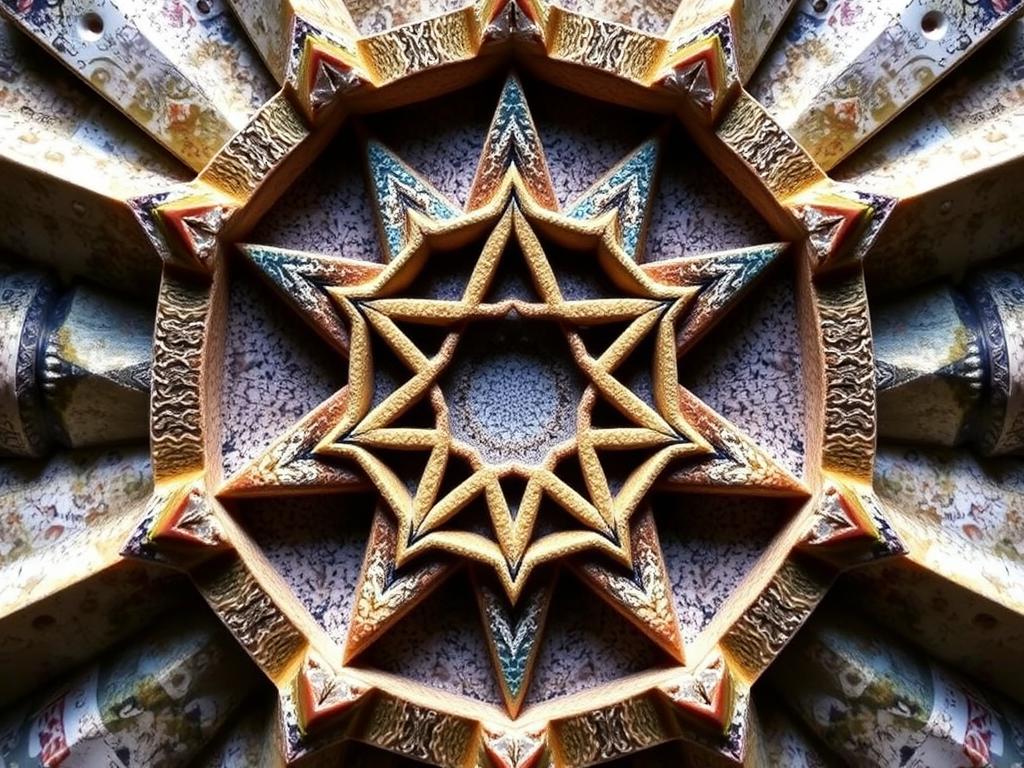Sacred Geometry in Everyday Life: Finding Spiritual Patterns
The world around us is filled with intricate patterns that hold deeper spiritual significance. From the spiral of a seashell to the perfect hexagons of a honeycomb, sacred geometry reveals the mathematical principles that govern both the physical and spiritual realms. For a deeper exploration of how these patterns influence our daily lives, I recommend visiting https://spiritcodex.net/, where you’ll find comprehensive guides on interpreting spiritual signs in our modern world.
Understanding Sacred Geometry: The Basic Principles
Sacred geometry isn’t just about shapes and patterns – it’s about understanding the fundamental principles that create and unify all things. These geometric patterns serve as a bridge between our visible, physical world and the invisible, spiritual realm.
The Fundamental Shapes
The building blocks of sacred geometry include:
- The circle – representing unity and wholeness
- The square – symbolizing stability and earthly existence
- The triangle – embodying divine trinity and harmony
- The spiral – depicting growth and evolution
- The hexagon – showing perfect efficiency and balance
Sacred Geometry in Nature
Nature provides countless examples of sacred geometric patterns:
The Fibonacci Sequence
Watch how plants grow their leaves in a spiral pattern, following the golden ratio. This isn’t random – it’s a mathematical sequence that allows for optimal sunlight exposure and growth.
Honeycomb Structures
Bees instinctively create hexagonal cells in their honeycombs, demonstrating nature’s inherent understanding of space efficiency and structural integrity.
Nautilus Shells
These sea creatures grow their shells in a perfect logarithmic spiral, embodying the golden ratio in three-dimensional space.
Sacred Geometry in Human Creation
Humans have long incorporated these divine patterns into our creations:
Architecture
From ancient pyramids to modern skyscrapers, sacred geometry principles guide architectural design:
- The Golden Ratio in the Parthenon
- The sacred proportions of Gothic cathedrals
- Islamic geometric patterns in mosques
- Feng Shui principles in Asian architecture
Art and Design
Artists throughout history have used sacred geometry to create harmonious compositions:
- Mandalas in Eastern art
- Renaissance perspective techniques
- Modern minimalist design
- Sacred symbols in religious art
Personal Applications of Sacred Geometry
Meditation and Sacred Spaces
Creating meditation spaces using sacred geometric principles can enhance spiritual practice:
- Arranging crystals in geometric patterns
- Using mandala designs for focus
- Creating altars with symbolic shapes
- Positioning furniture according to sacred proportions
Healing Applications
Many alternative healing practices incorporate sacred geometry:
- Crystal grids for energy work
- Geometric visualization in meditation
- Sacred geometry in yoga positions
- Energy field balancing using geometric patterns
Finding Sacred Geometry in Daily Life
Once you begin looking, you’ll notice sacred geometry everywhere:
In Technology
- Computer chip designs
- Network structures
- Digital imaging pixels
- Satellite configurations
In Social Structures
- Organization hierarchies
- Communication networks
- Community layouts
- Social media connections
The Spiritual Significance
Understanding sacred geometry helps us:
- Recognize divine order in chaos
- Connect with universal wisdom
- Align our lives with natural principles
- Enhance our spiritual awareness
Practical Ways to Work with Sacred Geometry
Creating Sacred Space
- Use geometric patterns in home decor
- Arrange furniture following geometric principles
- Incorporate natural materials that display sacred patterns
- Create art based on geometric principles
Personal Practice
- Draw or color geometric patterns
- Meditate on specific shapes
- Photography focusing on natural geometry
- Garden planning using sacred principles
Advanced Concepts in Sacred Geometry
The Platonic Solids
These five perfect 3D shapes represent the elements:
- Tetrahedron – Fire
- Cube – Earth
- Octahedron – Air
- Icosahedron – Water
- Dodecahedron – Ether/Universe
The Flower of Life
This pattern contains all five Platonic solids and represents the interconnected nature of existence.
Sacred Geometry in Modern Science
Modern scientific discoveries continue to validate ancient geometric wisdom:
- Molecular structures
- Quantum physics patterns
- DNA helix formation
- Planetary orbits
Integrating Sacred Geometry into Modern Life
Daily Awareness
- Notice patterns in nature
- Observe geometric shapes in architecture
- Recognize rhythms in daily activities
- Find symmetry in everyday objects
Practical Applications
- Garden design
- Home organization
- Art creation
- Space planning
The Future of Sacred Geometry
As we advance technologically, sacred geometry continues to influence:
- Sustainable architecture
- Biomimicry design
- Virtual reality spaces
- Artificial intelligence patterns
Conclusion
Sacred geometry surrounds us in endless forms, from the smallest atomic structures to the vast patterns of galaxies. By understanding and working with these divine patterns, we can better align ourselves with the natural order of the universe and enhance our spiritual connection to all things.
Remember that recognizing these patterns is just the beginning – the real magic happens when we start to understand their deeper significance in our lives and spiritual journey. The ancient wisdom of sacred geometry continues to reveal new insights in our modern world, showing us that the language of the universe remains constant, even as our understanding evolves.






